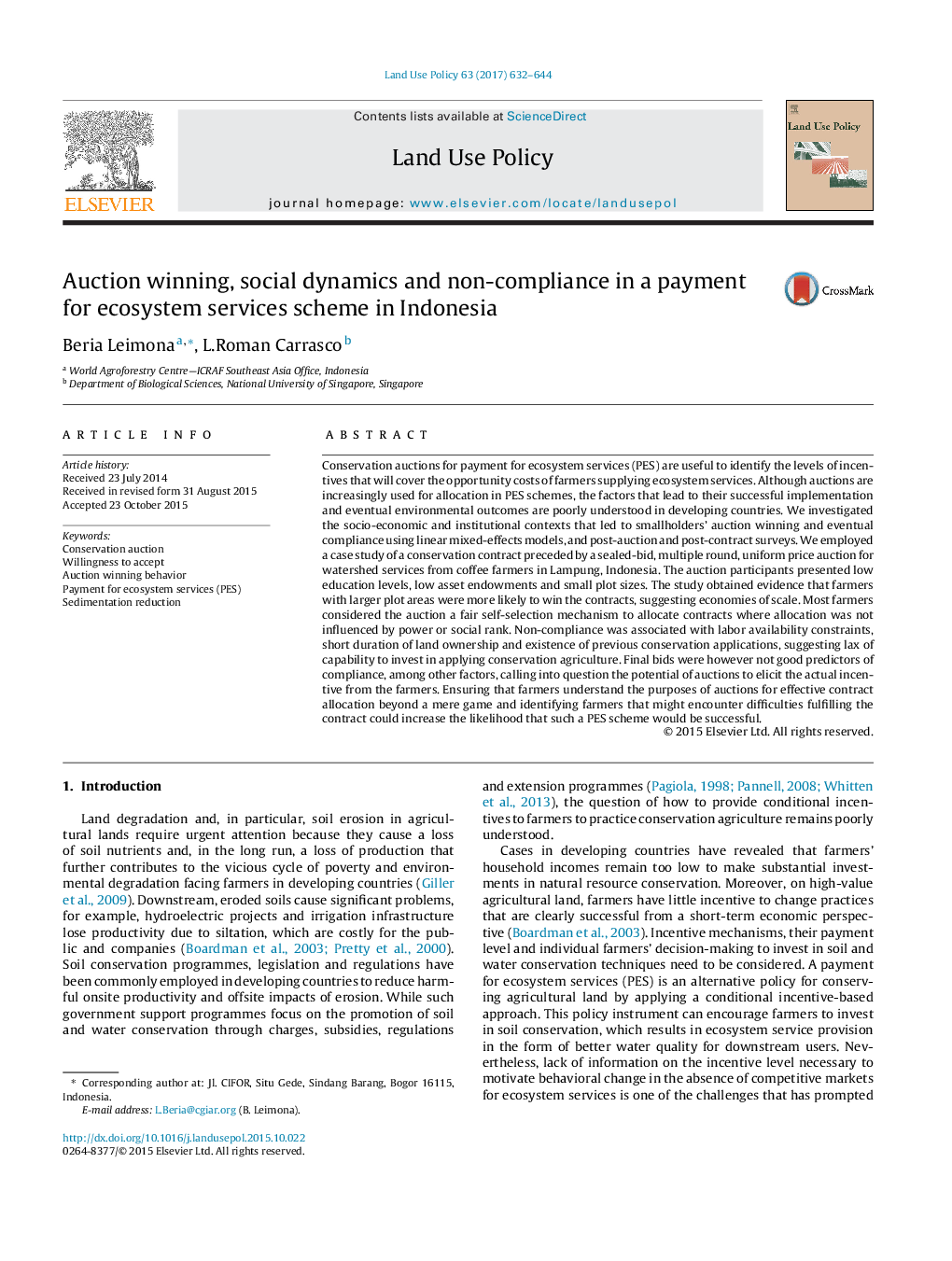| کد مقاله | کد نشریه | سال انتشار | مقاله انگلیسی | نسخه تمام متن |
|---|---|---|---|---|
| 6461103 | 1421820 | 2017 | 13 صفحه PDF | دانلود رایگان |
- The ability of an auction to predict incentives in payment for ecosystem services contracts was evaluated.
- The auction did not lead to social disruptions and in general was considered fair.
- Farmers winning the auction and lower bids were correlated to larger plots.
- Non-compliance was associated with limited labor resources and short period of land ownership.
- Past investment in conservation structures was not associated with compliance.
- Compliance was not associated with lower bids as a proxy of farmer's willingness-to-accept.
Conservation auctions for payment for ecosystem services (PES) are useful to identify the levels of incentives that will cover the opportunity costs of farmers supplying ecosystem services. Although auctions are increasingly used for allocation in PES schemes, the factors that lead to their successful implementation and eventual environmental outcomes are poorly understood in developing countries. We investigated the socio-economic and institutional contexts that led to smallholders' auction winning and eventual compliance using linear mixed-effects models, and post-auction and post-contract surveys. We employed a case study of a conservation contract preceded by a sealed-bid, multiple round, uniform price auction for watershed services from coffee farmers in Lampung, Indonesia. The auction participants presented low education levels, low asset endowments and small plot sizes. The study obtained evidence that farmers with larger plot areas were more likely to win the contracts, suggesting economies of scale. Most farmers considered the auction a fair self-selection mechanism to allocate contracts where allocation was not influenced by power or social rank. Non-compliance was associated with labor availability constraints, short duration of land ownership and existence of previous conservation applications, suggesting lax of capability to invest in applying conservation agriculture. Final bids were however not good predictors of compliance, among other factors, calling into question the potential of auctions to elicit the actual incentive from the farmers. Ensuring that farmers understand the purposes of auctions for effective contract allocation beyond a mere game and identifying farmers that might encounter difficulties fulfilling the contract could increase the likelihood that such a PES scheme would be successful.
Journal: Land Use Policy - Volume 63, April 2017, Pages 632-644
